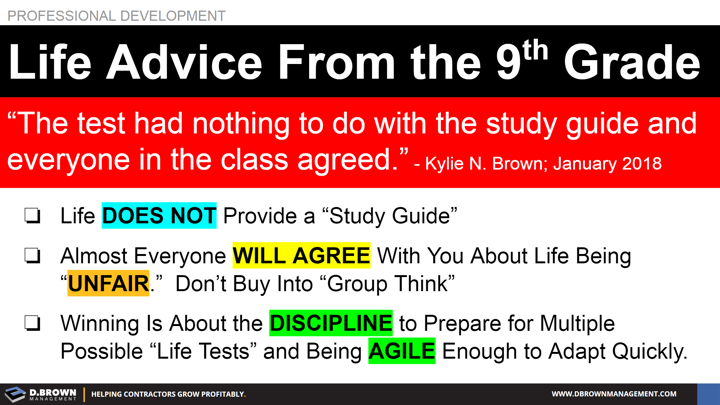Someone else tells us what to do, how to do it and when it needs to be done by.
Feeling “successful” on the “test” is relatively easy coming down to whether you have learned and practiced a known skill enough.
Rapidly accelerating advancements in technology are taking more and more of these routine jobs out of our economy requiring us to focus more and more on creativity, agility and the ability to make good decisions in the face information that is ambiguous, incomplete and conflicting .
We must be immune to the “group think” of complainers and work to lead them out of their negative thought processes.
We don’t know what will be on the “test” so the best thing we can do is learn a variety of topics deeply paying attention to multiple perspectives.
We can’t always control our results but we can control our process.
We can be disciplined in our approach leaving us more agile.

